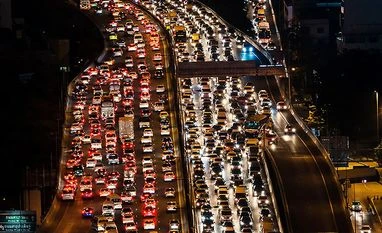"We had uploaded the draft notification on our website a month ago regarding the implementation of BS-V and BS-VI. We are going to have a meeting with the officials concerned tomorrow (on Wednesday); we might issue notification in a day or two," said Vijay Chibber, secretary - road, transport and highways.
The draft notification proposes BS-V norms to be implemented by April 2019 for new vehicle models and April 2020 for existing vehicle models. Further, according to the proposal, BS-VI norms are expected to be implemented by April 2021 for vehicle models and April 2022 for existing vehicle models.
More From This Section
The ministry has decided to advance the date for implementation of the higher level emission standards.
A senior executive of Indian Oil, India's largest fuel retailer, said, "We're going by the instructions of the oil ministry. Technically, there is not much of difference between BS-V and BS-VI. The oil marketing companies are preparing themselves for the switch-over to higher norms. More clarity on the deadline will be clear, when the final notification is out."
The Society of Automobile Manufacturers (Siam) has welcomed government's decision to move over to BS-V emission norms by 2019.
Commenting on the same, Vinod Dasari, president of Siam, said: "Upgradation to BS-V norms would reduce the pollution levels from the four-wheeler sector by 80 per cent in terms of PM2.5 (fine particulate matter) for HCV (heavy commercial vehicles) and 90 per cent for passenger cars and NOx (mono-nitrogen oxides) will be reduced by 60 per cent and 64 per cent, respectively, thereby making huge contributions to the ambient air quality of Indian cities. We are happy that Siam's recommendation to advance the BS-V timeline to 2019 has been accepted by the government."
However, for the country to switch over to BS-V norms, the requisite 10 parts per million (ppm) sulphur BS-V fuel will have to be introduced by the oil companies by 2019 across India before the new technology vehicles are introduced. In case of unavailability of the requisite fuel, the use of BS-IV fuel might damage the engine as well as the after-treatment devices fitted in the new vehicle. Also, this might vitiate the new technology benefits and the expected improvements in air quality. If the vehicle and fuel is not compatible, the higher emission norms cannot be met, said Dasari.
On the upgradation to BS-VI level by 2021/22 as proposed by the government, Dasari said intense discussions have already been held with various ministries over the past six months. Siam has highlighted the challenges versus the benefits of advancing the BS-VI norms from the AFP (auto fuel policy) Committee recommended date of April 2024.
Siam has proposed that the BS-VI norms be advanced to 2023 by compressing the technology development time by one year. Any further advancement of BS-VI norms will neither be technically possible nor advisable due to the extensive testing and validation of the technologies.
)